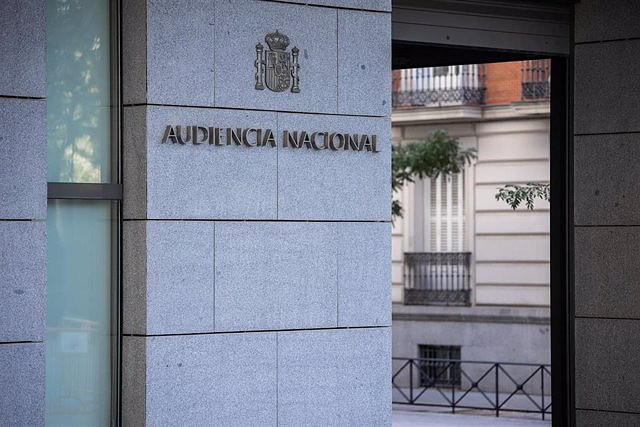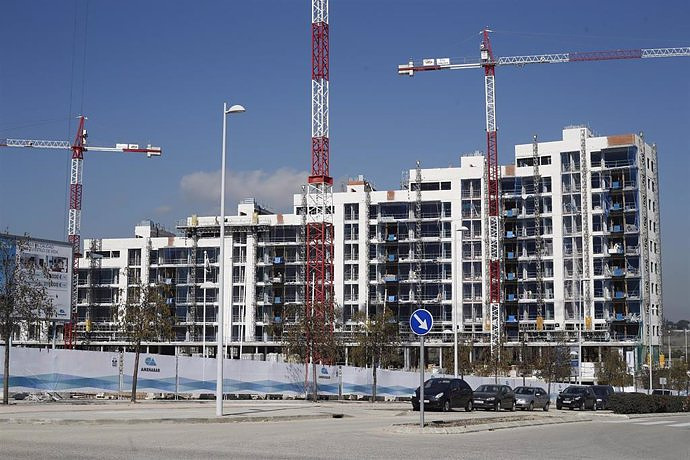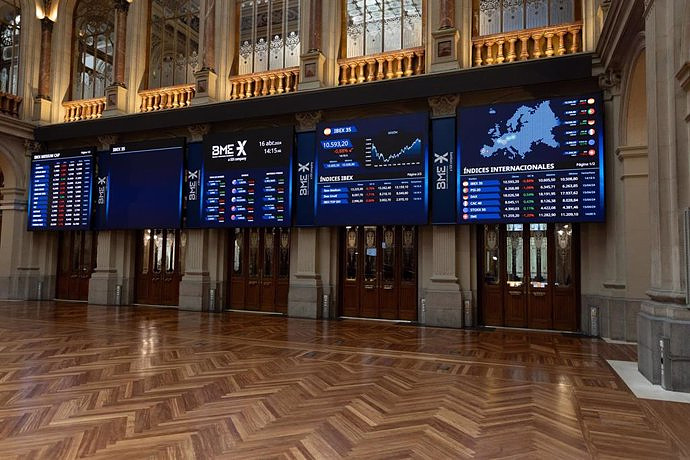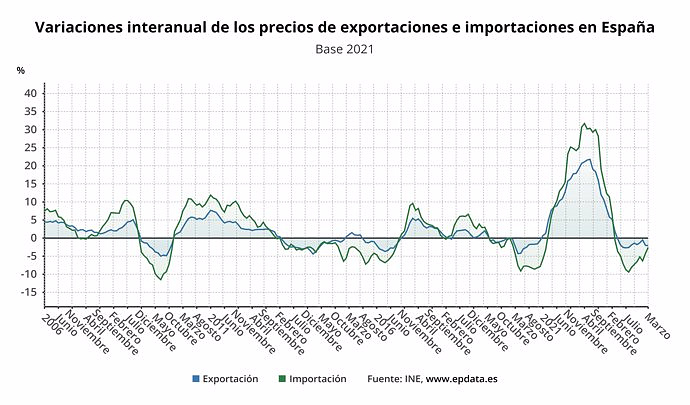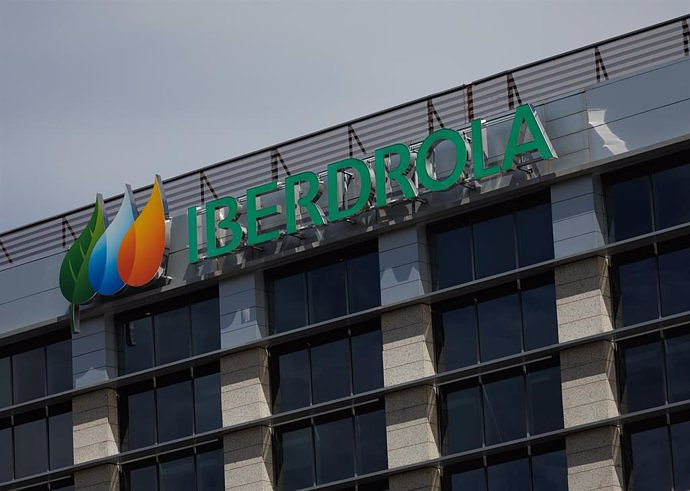The former head of the Port Authority makes it clear that his duties did not include "monitoring" of the works
MADRID, 17 Ene. (EUROPA PRESS) -
The former director of the Port of Gijón José Luis Díaz Rato has assured this Tuesday in the trial that is being held in the National Court for the alleged irregularities committed in the award of the contract for the works of the port of El Musel, in Gijón, that he warned that the project finally chosen for the enlargement "was not admissible".
Díaz Rato, for whom the Anti-Corruption Prosecutor is interested in a sentence of three years in prison as the author of a crime of fraud and 25 years of disqualification for crimes of prevarication, explained that he issued this warning before the meeting of the Board of Directors held in February from 2004.
In that meeting, as explained by the judge in an order, "it was urgently agreed to opt for the so-called variant this sponsored by State Ports and to request the Ministry of Public Works and State Ports to contribute the aforementioned funds and the adoption, by the competent bodies, of the administrative and technical measures necessary so that the works could be tendered in the shortest possible time".
Díaz Rato has indicated that he did not participate "at all" in that meeting. "I participated as president, but I did not say anything because I had already said it months before, when Puertos del Estado raised the eastern variant. I stated my criteria and my opinion that this solution was not admissible. In this Council I limited myself to being present", has asserted.
The former director of the Port of Gijón has insisted that his proposal was variant 3C since, in his opinion, it "solved a historical problem" of the port itself. If the aforementioned variant was finally chosen, he has recognized, it is because it was "the only way to advance with an extension". "There was no other alternative," he added.
Díaz Rato expressed himself like this during the second session of the oral hearing, which focuses on the expansion works of the port of El Musel and, specifically, on the award in 2004 of the public works contract for an initial amount of 580 million of euros. It was a project that, in addition, was financed by the cohesion funds of the European Union, an aid that amounted to 247.5 million euros.
This procedure also focuses on the extra costs that were finally incurred with respect to the initial project. The approval in 2007 of the modified expansion of the port set the final amount at more than 830 million euros, contemplating an increase of 250 million euros in investment.
This second session of the trial has started where the first ended: with the interrogation of the former president of the Port Authority of Gijón Fernando Menéndez Rexach. Anticorruption requests for him three years in prison as the author of a crime of fraud and 25 years of disqualification for crimes of prevarication.
To questions from his defense, Menéndez has detailed what his duties were in office. "Directing the Council, enforcing its decisions and having a guarantee of economic control. Also everything that was representation and defense of the Authority itself. That was the objective of my function, not so much monitoring the work," he pointed out. .
Along these lines, the former head of the city's Port Authority has insisted: "The port law required that the port director be a civil engineer with 5 years of experience and was the one who had complete responsibility for the execution of the works. I had the financial responsibility but not the technical one in the execution".
Asked if he knows of another work in a port that ended with a negative liquidation of 200 million, Menéndez has been blunt: "I don't know of any, they can ask the contractors to see which ones they are aware of."
Thus, he has pointed out that he always focused on "the expansion of the port of La Coruña, which had a higher modification". "And there was no negative settlement or problem on the part of the European Anti-Fraud Office, the Prosecutor's Office or any issue", he has settled.

 Exploring Cardano: Inner Workings and Advantages of this Cryptocurrency
Exploring Cardano: Inner Workings and Advantages of this Cryptocurrency Seville.- Economy.- Innova.- STSA inaugurates its new painting and sealing hangar in San Pablo, for 18 million
Seville.- Economy.- Innova.- STSA inaugurates its new painting and sealing hangar in San Pablo, for 18 million Innova.- More than 300 volunteers join the Andalucía Compromiso Digital network in one month to facilitate access to ICT
Innova.- More than 300 volunteers join the Andalucía Compromiso Digital network in one month to facilitate access to ICT Innova.-AMP.- Ayesa acquires 51% of Sadiel, which will create new technological engineering products and expand markets
Innova.-AMP.- Ayesa acquires 51% of Sadiel, which will create new technological engineering products and expand markets Nadal is still alive and exciting in Madrid
Nadal is still alive and exciting in Madrid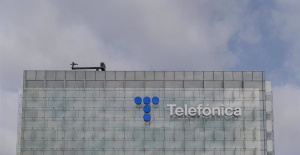 The Treasury injected another 500 million into the SEPI in March to purchase Telefónica shares
The Treasury injected another 500 million into the SEPI in March to purchase Telefónica shares The complaints from ERC and PP against Sánchez's interview do not reach the JEC in time, which did not consider suspending it
The complaints from ERC and PP against Sánchez's interview do not reach the JEC in time, which did not consider suspending it Occupancy in Spain for the May long weekend exceeds 80%, with Andalusia and the Canary Islands as preferred destinations
Occupancy in Spain for the May long weekend exceeds 80%, with Andalusia and the Canary Islands as preferred destinations How Blockchain in being used to shape the future
How Blockchain in being used to shape the future Not just BTC and ETH: Here Are Some More Interesting Coins Worth Focusing on
Not just BTC and ETH: Here Are Some More Interesting Coins Worth Focusing on They create a bank of machinery sounds to prevent breakdowns through artificial intelligence
They create a bank of machinery sounds to prevent breakdowns through artificial intelligence UPV students build a prototype of a wooden house to move to Equatorial Guinea
UPV students build a prototype of a wooden house to move to Equatorial Guinea The UA opens the call for the Impulso 2024 Awards for the best innovative business initiatives
The UA opens the call for the Impulso 2024 Awards for the best innovative business initiatives ALI, virtual assistant from Alicante, internationally recognized by the OECD
ALI, virtual assistant from Alicante, internationally recognized by the OECD A million people demonstrate in France against Macron's pension reform
A million people demonstrate in France against Macron's pension reform Russia launches several missiles against "critical infrastructure" in the city of Zaporizhia
Russia launches several missiles against "critical infrastructure" in the city of Zaporizhia A "procession" remembers the dead of the Calabria shipwreck as bodies continue to wash up on the shore
A "procession" remembers the dead of the Calabria shipwreck as bodies continue to wash up on the shore Prison sentences handed down for three prominent Hong Kong pro-democracy activists
Prison sentences handed down for three prominent Hong Kong pro-democracy activists ETH continues to leave trading platforms, Ethereum balance on exchanges lowest in 3 years
ETH continues to leave trading platforms, Ethereum balance on exchanges lowest in 3 years Investors invest $450 million in Consensys, Ethereum incubator now valued at $7 billion
Investors invest $450 million in Consensys, Ethereum incubator now valued at $7 billion Alchemy Integrates Ethereum L2 Product Starknet to Enhance Web3 Scalability at a Price 100x Lower Than L1 Fees
Alchemy Integrates Ethereum L2 Product Starknet to Enhance Web3 Scalability at a Price 100x Lower Than L1 Fees Mining Report: Bitcoin's Electricity Consumption Declines by 25% in Q1 2022
Mining Report: Bitcoin's Electricity Consumption Declines by 25% in Q1 2022 Oil-to-Bitcoin Mining Firm Crusoe Energy Systems Raised $505 Million
Oil-to-Bitcoin Mining Firm Crusoe Energy Systems Raised $505 Million Microbt reveals the latest Bitcoin mining rigs -- Machines produce up to 126 TH/s with custom 5nm chip design
Microbt reveals the latest Bitcoin mining rigs -- Machines produce up to 126 TH/s with custom 5nm chip design Bitcoin's Mining Difficulty Hits a Lifetime High, With More Than 90% of BTC Supply Issued
Bitcoin's Mining Difficulty Hits a Lifetime High, With More Than 90% of BTC Supply Issued The Biggest Movers are Near, EOS, and RUNE during Friday's Selloff
The Biggest Movers are Near, EOS, and RUNE during Friday's Selloff Global Markets Spooked by a Hawkish Fed and Covid, Stocks and Crypto Gain After Musk Buys Twitter
Global Markets Spooked by a Hawkish Fed and Covid, Stocks and Crypto Gain After Musk Buys Twitter Bitso to offset carbon emissions from the Trading Platform's ERC20, ETH, and BTC Transactions
Bitso to offset carbon emissions from the Trading Platform's ERC20, ETH, and BTC Transactions Draftkings Announces 2022 College Hoops NFT Selection for March Madness
Draftkings Announces 2022 College Hoops NFT Selection for March Madness